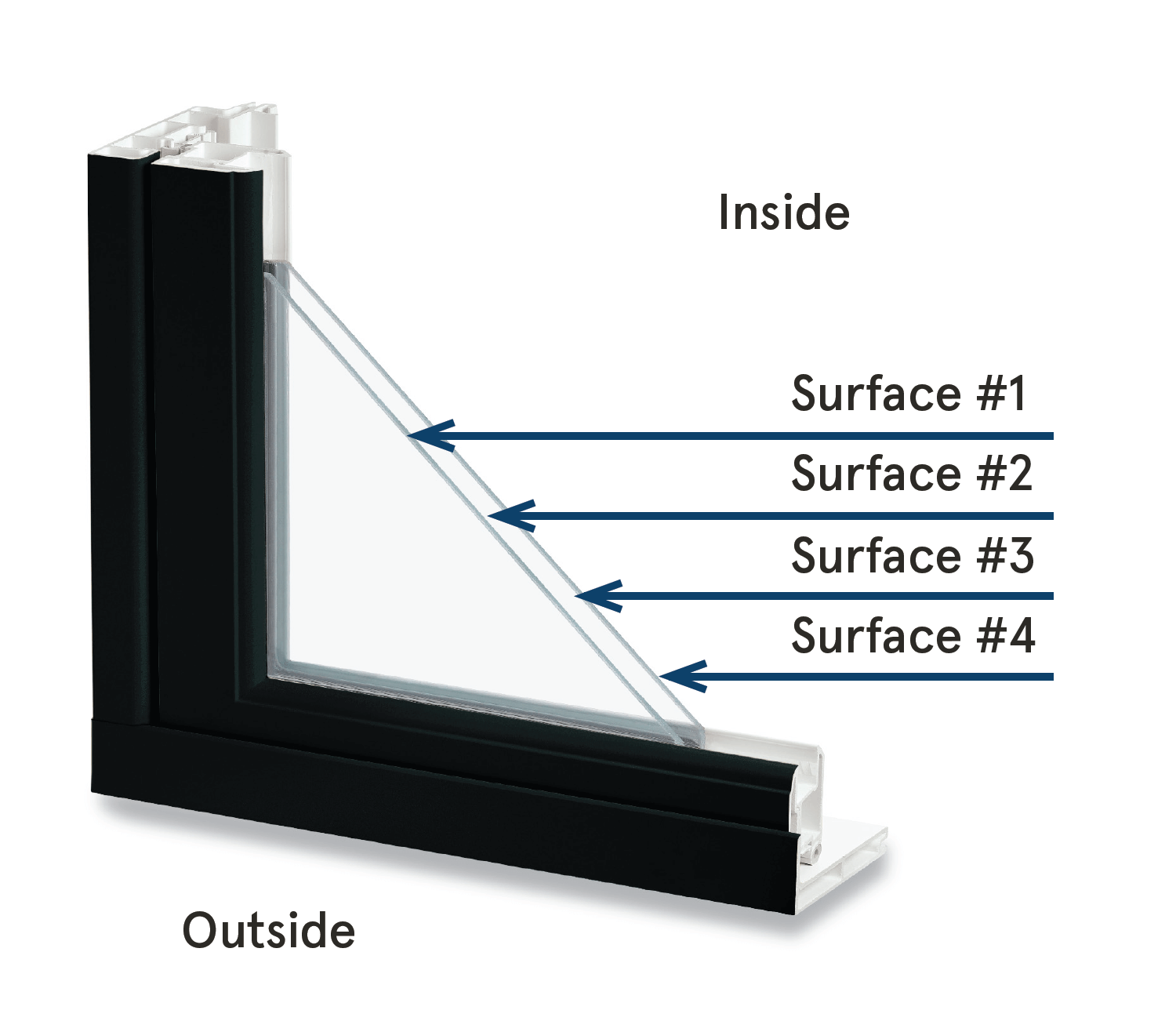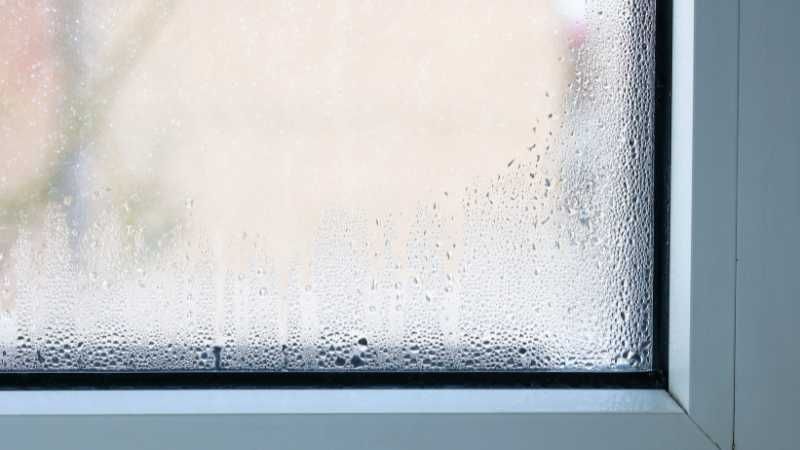Common Window Problems — Foggy Windows
Understanding the Difference: Is Condensation or Window Seal Failure to Blame for Your Foggy Windows?
Foggy glass is all too common for homeowners. The haze obscures your views and makes your home's windows appear unattractive. And it can be a sign that you have an even bigger problem.
If the culprit of foggy windows is a faulty seal, you may suffer moisture damage, higher energy bills, and unhealthy mold and mildew growth. So it's important to identify what's causing your windows to look cloudy or damp so you can properly address it and protect your home.
Let's take a closer look at why this fogginess occurs, how to pinpoint the cause, and how to know if it's time to replace your windows.
Guide Chapters
Foggy Home Windows?
To protect your house from moisture leaks, wood rot, and mold, you must deal promptly with the underlying cause of any fogginess. Waiting could make things worse—and more costly to address. To determine what's causing the fogged-up, wet glass, inspect your windows and notice these factors:
Location of the Fog

If moisture and haziness form on the outside of your windowpanes (surface #1 or #4), this is usually the result of condensation. But if you see moisture, debris, dirt or cloudiness between the two panes of glass (surface #2 or #3), it's likely the seals have failed.
Time of Day the Fogginess Occurs
If you're noticing fogged-up, damp window glass in the early morning but then it goes away, the issue is likely condensation—which forms when the temperature outdoors is considerably different from your home's interior.
Type of Window Material You Have
Seals can break if the window frames frequently expand and contract. Vinyl windows are susceptible to temperature ups and downs, causing their expansion and contraction to potentially lead to seal failure. Meanwhile, wood rot can make wood window frames shift. However, Ultrex® Fiberglass windows stay tightly in place and don't rot, so fogginess on them is more likely to be due to condensation.
Note: If you have a historic home with aging windows, you don't have to choose wood replacements. Today's fiberglass windows can match historic architecture and comply with local requirements.
Age of Windows
New Ultrex® fiberglass windows are highly efficient, and as a result, you may see condensation temporarily appearing on the exterior of the glass. Older windows are more likely to exhibit damage due to broken seals.
Understanding Window Condensation

With condensation, you'll notice dampness and beads of water forming a hazy appearance on the outer sides of your window glass—either the side facing your yard (surface #1) or the side facing your home's interior (surface #4).
What Causes Condensation?
If you've ever seen a glass of ice water sweat on a hot day, then you've seen condensation in action. The temperature difference inside and outside the glass causes moisture droplets to form.
Exterior condensation (surface #4) can be caused by various factors. If there is a significant temperature difference between the outside and inside, such as a cold spring or fall morning, you could see this condensation on the exterior of your window. However, as the temperature rises, you'll notice the condensation evaporates.
Interior condensation could be the result of an excessive amount of humidity inside your home, such as on summer days when the weather is sweltering, or when you run long showers in a bathroom that's not well-ventilated. Boiling water on the stove can also create humidity that temporarily fogs your kitchen windows.
Why Is Condensation a Problem?
Since interior condensation could be the result of excess moisture in and around your home, it can create problems. If the area is damp around wood windowsills, rotting can occur - and you might want to install an alternative to wood windows. Mold and mildew can grow, causing breathing difficulties for family members with allergies and asthma.
How Can You Manage or Prevent Interior Condensation?
To help prevent condensation from forming on the interior of your windows, lower humidity by:
Keep the thermostat set closer to the outdoor temperature when possible.
Don't use a humidifier indoors when you don't need to.
Increase ventilation by opening your windows for a few minutes each day.
Run exhaust fans during and after bathing and cooking and make sure your kitchen and bathrooms are well-ventilated.
Open blinds and drapes to allow condensation to dissipate.
Limit the number of houseplants you keep indoors.
Understanding Window Seal Failure
While condensation occurs on the exterior of your glass surfaces, seal failure takes place in between the glass panes (surface #2 and #3). When the seal between the panes of glass is compromised, damaged, or breaks, this can result in energy efficient gas escaping and moisture forming in between, thus the fogginess that appears. Seal failure means your window's structure is starting to break down.
When seals stop functioning, you may notice one or more of these symptoms:
Dampness
Moisture leaks
Dirt or insects inside double-paned glass
Glass that's distorted or warped
Drafts
Higher energy costs
Mold and mildew
What Causes Window Seals to Fail?
Age — As time passes, your windows suffer from everyday wear and tear. Eventually, they reach the end of their lifespan, and problems such as broken seals can appear.
Weather damage — Seasonal changes, strong storms, hail, and wind can all be harsh on your windows. Flying debris can break window seals so they no longer provide a protective barrier.
Low-quality products — Many homes are originally installed with builder-grade windows, an inferior product that is lower in cost. But they don't last long—so you may have broken window seals soon after installation. Builder-grade windows are worth replacing with long-lasting, high-performing products like Infinity from Marvin Windows. Likewise, certain materials such as vinyl, expand and contract at much higher rates than glass, which can lead to seal failure problems.
Why You Should Be Concerned about Failing Window Seals
Unfortunately, failing seals will prevent your windows from performing properly. Their weakened state leads to higher energy usage, as your windows won't provide sufficient insulation.
Plus, the constant exposure to outdoor air and humidity means you can end up with leaks and wood rot. You might not see the impacts of that damage for a while, but it compromises your home's structural integrity.
How to Manage or Prevent Window Seal Failure
Unfortunately, window seal failure is not a simple fix. It means your window can't work to its full potential, so it should be repaired or replaced—not ignored.
Check all your windows—What's happening to one window may be happening to several.
Contact a professional—The best way to tell if your problem is due to failing seals is to call on window experts to check things out.
Make minor repairs—Replace missing caulking or weather-stripping.
Grab your warranty—If the failure is related to a manufacturer's defect, your warranty may cover some of the replacement costs.
Avoid pressure washers—These high-powered tools can weaken windows, so don't use them on your home.
Replace your windows—a repair may just be a quick fix - not a permanent solution. To avoid dealing with this again, you may want to skip the hassle and simply replace them with a higher quality window.
When to Repair vs. Replace Foggy Windows
Even if you're a fan of do-it-yourself home maintenance, it's not a great idea to try to make repairs yourself. Windows require precise installation and care, or they won't give your home the protection and insulation it needs.
If you decide to replace your windows, we have a conversation with you and we educate you on what's happening so you can make a fact-based decision and select what you truly need for your home lifestyle and budget. The factors below help determine whether window repair or replacement makes sense.
Create Better Ventilation to Banish Condensation
If your issue is due to condensation, you can improve the situation with better airflow. Ventilating your home with new exhaust fans can help, as can dehumidifiers placed in key locations (such as damp basements). Windows that easily open also help air to move, drying up condensation—so replace any that are broken.
Repair Broken Seals if Possible
Attempting to repair a broken window seal is not always possible. Contact a glass replacement company to see if they can just replace the glass without replacing the entire window frame. But this is also just a temporary fix. For these reasons, we avoid patchwork repairs that don't guarantee you the results you deserve to enjoy.
Replace the Entire Window—the Permanent Solution!
The only lasting solution for broken window seals is to completely replace the failing windows. Doing so ensures your home is well insulated, keeping out excess moisture and improving energy efficiency. Plus, new windows can boost curb appeal, make your home brighter and more inviting, and add value that can't be denied.
At North Georgia Replacement Windows, we believe in finding long-term solutions to your foggy windows. Whether you have seal failure or other issues, we replace the entire window with long-lasting, damage-resistant fiberglass windows by Infinity from Marvin. Their Ultrex® fiberglass window has a true fit, stands up well to weather extremes, and resists damage.
Why Choose North Georgia Replacement Windows to Address Your Foggy Windows?
The window contractor you choose to address your concerns is key! You want a team that pays attention to details, delivers quality workmanship that you can count on, and has a strong commitment to serving homeowners in your community.
At North Georgia Replacement Windows, we install only premium Infinity from Marvin windows precisely because we've seen through experience how well they deliver top-notch performance. We're the exclusive Infinity from Marvin window dealer for the entire state of Georgia—and we're highly-rated in customer reviews by third-party GuildQuality surveys. You'll appreciate knowing your installation is done to the highest standards.
Many homeowners get pressured into buying the wrong replacement windows. We have a simple, no-pressure process that helps you get the windows you'll love forever.
Learn more about our windows installations by checking out the projects we've completed for fellow Georgians. And reach out anytime with questions—we'd love to serve you!



